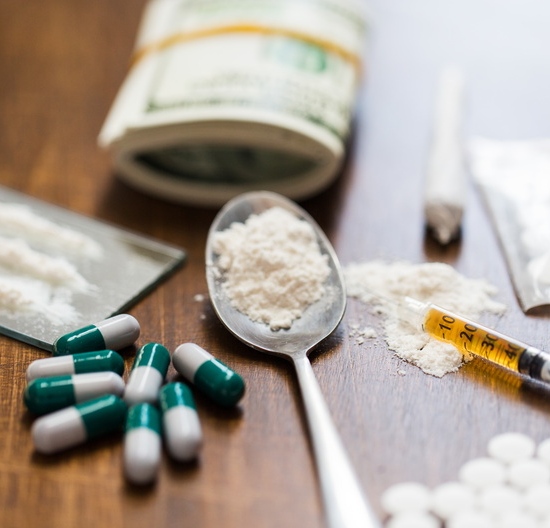Felony drug charges are types of drug crimes that fall into serious offenses. Under the federal and state criminal justice system, any type of felony charge results in a prison sentence that is more than one year. Aside from jail time, the person convicted will also have to pay heftier and expensive criminal fines. First offense felony drug charges can be very daunting to defendants facing the trials which can be stressful. A lawyer specializing in these types of cases could provide legal counsel to the defendant.
Possessing any type of illegal substance can be liable to be charged under a felony or misdemeanor charge. A defendant must avoid a felony charge at all costs as it has more serious repercussions. The prosecutor’s choice on which charge to file is dependent on the type of drug involved. The situation related to the crime will also play a part in the type of charge. The level of the charges can also be determined by certain aggravating circumstances that were present or if the nature of the crime calls for a heavier type of charge. In cases where there is “aggravation,” a felony charge might be imposed.
Classification of Illegal Drugs
Almost every other state divides the drugs into certain categories which are referred to as “schedules”. These types of groups are based on the Federal Controlled Substances Act or CSA. The CSA categorizes the drugs based on their medical value while balancing it into the substance’s potential to be abused.
Most states across the United States have five schedules. Substances under Schedule 1 are the most dangerous among the other drug types. If caught selling a Schedule 1 type of drug, even if it is a first offense felony drug charges, it can lead to long prison time. Schedule 5 is the least dangerous to be abused. Drugs like morphine have real medical usage and value. However, morphine is addictive which is why it falls in between legal and illegal. If prescribed by a licensed doctor or pharmacist to be utilized for medical purposes, then it can be considered legal.
Factors That Could Turn A Drug Charge Into A Felony
Amount and Type of Drug
Felony charges on drug possession would often result in the defendant possessing a certain illegal drug or possessing a particular quantity of illicit substances. In most states, anyone who possesses any amount of a Schedule 1 drug like heroin is considered a felony. In the instance that the type of drug is below the other Schedules or a lesser dangerous drug, the charge will be determined by the amount within the defendant’s possession.
Intent On What To Do With The Drugs
Possessing illicit substances for personal use often results in lesser charges compared to possessing it with the intent of selling. The difference in punishment reflects the lawmakers’ point of view on the danger that each crime may cause. In the legal system, the drug trade views the sellers victimizing the drug users. A user only harms himself while the seller harms many people for selfish gain.
Possession is still a crime even if the drugs are in small amounts. States that have a strict drug possession law may consider certain substances to be eligible for a felony charge. More lenient states are still strict with substances like cocaine and heroin. Even a small amount of possessing these substances can lead to a felony charge.
Also, when a person is caught with large quantities of illegal drugs, the charge can be referred to as illegal possession with intent to sell. The charge was made because the person may unlikely not use the entire quantity for his or her self. Since illegal drug trade is deemed a serious crime, a possession with intent to sell charge is considered a felony.
“Aggravating Circumstances”
Many states may have prosecutors who would charge a defendant with a felony if the case involved aggravating factors, even if the drug case could have been a misdemeanor. An example of aggravating circumstances involves cases where illegal drugs are around or sold to children.
Misdemeanor drug charges can turn to a felony when one or more of the listed aggravating situations are involved in the use of drugs:
– Repeat offenders, those people who have previous drug convictions
– Near parks, swimming pools, housing units, public transportation or public buildings.
– Near a school, school bus, or school bus stop
– Near a drug treatment facility
– Presence of a child or a minor
Defendants who are in the middle of first-offense felony drug charges or even a repeat charge must work with a specialized lawyer. A specialized lawyer can easily navigate drug cases. Seek legal advice when dealing with these types of charges as it can lead to serious jail time.


